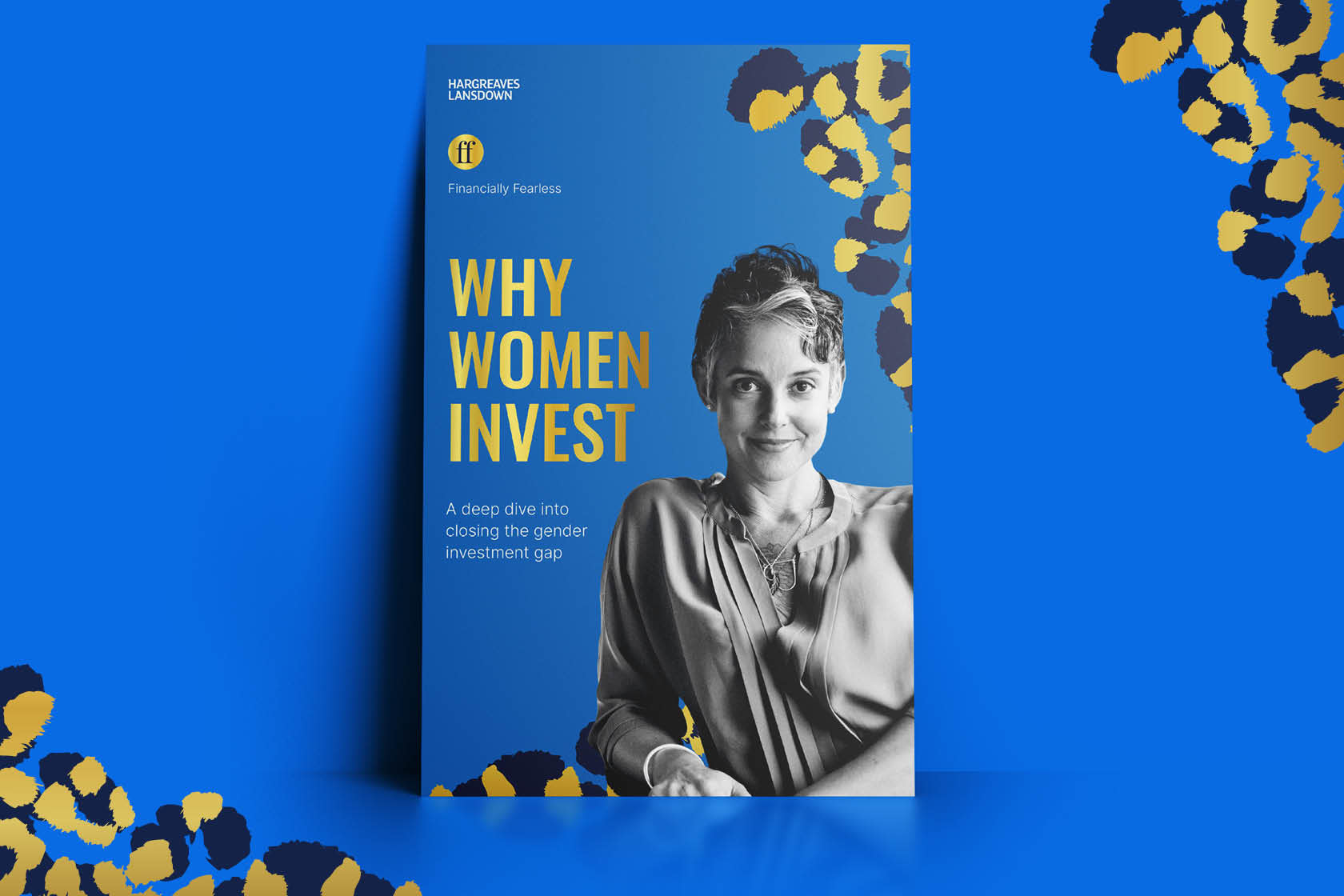Women are creating wealth faster than ever before. Estimates have women set to inherit 70% of global wealth over the next two generations.
That’s eye-watering. But when it comes to investing, women are still in the minority.
We’re great savers – in fact, according to HMRC figures we hold more in Cash ISAs than men. But when it comes to investing women open a lot fewer Stocks and Shares ISAs than men.
So much research has been done into why the ‘gender investment gap’ exists – and the findings are always pretty similar. For the most part, it’s about the barriers that women face, from the gender pay gap and career breaks to a lack of financial education and confidence.
While these are very real challenges which women grapple with during their lifetimes, there are still women who do invest, even with these hurdles. In fact, at HL, we have an army of female investors – more than 650,000 strong.
We wanted to understand more about why, and how these women invest. Because the more we understand, the more we have to build on to convince more women about the long-term benefits of investing.
This article isn't personal advice. Investments can go up and down in value, so you could get back less than you invest. If you're not sure what's right for you, seek advice.
Why should women invest?
It’s important we’re not just focusing on what women earn relative to men, but also on what women have and keep over their lifetimes, and how they can grow this. Because this is the key to unlocking their long-term financial resilience and wealth.
12,390
And this matters. Everyone’s living longer, but women are outliving men. Of the more than 15,000 centenarians living in England and Wales in 2022, the vast majority, 12,390, were women.
We need our pension savings to last as long as we do. Not just because the days of gold-plated final salary pension schemes are long gone, but also because women are often outside the net of automatic enrolment.
This means that almost a fifth of female employees don’t meet the qualifying criteria for automatic enrolment, compared to under one in 10 male employees. That’s 2.5 million women.
79%
A further 1.9 million women earn below the earnings threshold of £10,000, making up a staggering 79% of the workers who don’t meet this qualifying criterion. And today, over two thirds of pensioners in poverty are women, and half of pensioners in poverty are single women.
Engaging with our finances, and investing won’t change these numbers overnight. After all, the history of the pension system is tied to outdated expectations of divisions of labour which underpin these deep structural and complex issues.
But getting more women investing will help. Not least because today’s pensions are underpinned by investments in the stock market. So whether we want to believe it or not, if we have a workplace pension or a Self-Invested Pension Plan (SIPP), we are in fact investors.
And the next logical step to get more women to invest might lie in understanding why some women already invest.
Instead of going down the well-trodden path of highlighting the barriers, we wanted to understand what brings women to the world of investing.
We combined comprehensive quantitative research from 7,500 women savers and investors, in-depth interviews with 35 investors and non-investors, as well as our own data.
Here’s some of what we learned:
A shift is underway
A generational shift in attitudes to money is helping more women invest, but investing is still seen as inherently ‘masculine’.
Mum knows best
Women who grew up openly discussing investments with their family were more likely to be investors, and mothers have more influence on our approach to money than fathers.
How we ‘speak investment’ matters
Improving the language around investments is key. For example, risk warnings are a regulatory requirement, but we need to work harder on making these warnings more accessible.
Women are risk aware
We’re often told ‘women are risk averse’. But there’s no concrete evidence to back that up, it’s often bandied about and to an extent becomes self-perpetuating for a lot of women. What we are is risk aware when it comes to money and investing. We don’t want to ‘get it wrong’ and that fear can lead to inertia, or so-called ‘analysis paralysis’.
Women value the control investing gives them
While we’re often telling women to ‘be more confident’, maybe we should focus more on the control that comes with investing. As one investor put it:
“I think for women so much of life is out of our control. Investing is a way of taking greater control of what’s happening to your future.”
We’ve also learnt a lot about how women invest. Like how women are often ad hoc investors, preferring lump sums where we tend to buy and hold, instead of regular investing. We invest in home soil, prefer actively-managed funds and tend to steer clear from investments that are speculative, risky or hard to understand.
Well, you’ll have to read the report to find out.


